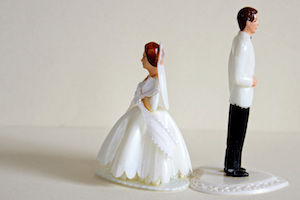Recent Blog Posts
Receiving an Order of Protection if You Are a Victim of Abuse
 Realizing that you are in an abusive relationship often takes much longer than many people expect. Due to the emotional ties and feelings of obligation that people in such relationships often experience, they may deny that abuse is occurring. In addition to enduring abuse, victims often struggle to gather the courage and strength to break ties with their abuser. For some, ending an abusive relationship is not only emotionally difficult, but it can also be physically dangerous. In these cases, a victim may be able to protect their safety by obtaining an order of protection.
Realizing that you are in an abusive relationship often takes much longer than many people expect. Due to the emotional ties and feelings of obligation that people in such relationships often experience, they may deny that abuse is occurring. In addition to enduring abuse, victims often struggle to gather the courage and strength to break ties with their abuser. For some, ending an abusive relationship is not only emotionally difficult, but it can also be physically dangerous. In these cases, a victim may be able to protect their safety by obtaining an order of protection.
Orders of Protection in Illinois
An order of protection is what many people commonly call a restraining order. While a restraining order may be obtained to protect against an abusive spouse or partner, these types of orders are not limited solely to those who are romantically involved. An order of protection can be obtained against the following people:
How Illinois Law Addresses Cyberbullying
 For young people in the 21st century, growing up under the influence of the internet and social media has resulted in different forms of bullying than in the past. Though cyberbullying is not new, it has continued to evolve as social media formats change. Internet usage among young adults has changed from IMing to DMing, from texting to tweeting, and from posting on Tumblr to selecting the best filter for an Instagram photo. Because the social media realm is ever-changing, new bullying tactics emerge as online trends change.
For young people in the 21st century, growing up under the influence of the internet and social media has resulted in different forms of bullying than in the past. Though cyberbullying is not new, it has continued to evolve as social media formats change. Internet usage among young adults has changed from IMing to DMing, from texting to tweeting, and from posting on Tumblr to selecting the best filter for an Instagram photo. Because the social media realm is ever-changing, new bullying tactics emerge as online trends change.
Cyberbullying can occur through messaging, social media sites, and gaming programs. The United States at large has recognized the problem of cyberbullying; however, laws and regulations change state-by-state. Illinois has taken actions to reduce cyberbullying and improve youths’ experiences in junior high and high school, and those accused of cyberbullying should work with a criminal defense attorney to understand their rights and legal options.
Understanding Marriage Annulment in Illinois
 An annulment provides couples with a way to dissolve a marriage in some circumstances. Like a divorce, an annulment ends the legal partnership of marriage between two people. However, unlike a divorce, an annulment declares the marriage invalid, essentially erasing the existence of the marriage as a whole. While many going through a divorce may wish their marriage never happened, not all couples can obtain an annulment. In Illinois, there are several instances and time limits in which one can receive an annulment (known under Illinois law as a declaration of invalidity of marriage):
An annulment provides couples with a way to dissolve a marriage in some circumstances. Like a divorce, an annulment ends the legal partnership of marriage between two people. However, unlike a divorce, an annulment declares the marriage invalid, essentially erasing the existence of the marriage as a whole. While many going through a divorce may wish their marriage never happened, not all couples can obtain an annulment. In Illinois, there are several instances and time limits in which one can receive an annulment (known under Illinois law as a declaration of invalidity of marriage):
- One or both spouses could not consent to be married. Reasons why a spouse may not have been able to consent include mental disability, the influence of alcohol or drugs, or the use of force or duress. The time limit for an annulment due to lack of consent is 90 days, and this type of annulment can be sought by either spouse or by the legal representative (such as a parent or guardian) of a spouse who lacks the mental capacity for consent.
Understanding Gun Laws for Illinois Residents and Non-Residents
 Firearm safety and gun laws are hot-button topics in America due to the high number of shootings that have occurred over the last couple of decades. Though many are advocating for the tightening of gun regulations across the nation, it is difficult to accomplish this when gun laws differ so significantly from state to state and situation to situation. Firearm owners should be sure to understand their gun rights as an Illinois resident or non-resident in order to avoid the possibility of facing weapons charges.
Firearm safety and gun laws are hot-button topics in America due to the high number of shootings that have occurred over the last couple of decades. Though many are advocating for the tightening of gun regulations across the nation, it is difficult to accomplish this when gun laws differ so significantly from state to state and situation to situation. Firearm owners should be sure to understand their gun rights as an Illinois resident or non-resident in order to avoid the possibility of facing weapons charges.
Resident Rights
Obtaining the ability to legally carry and use a gun in Illinois is a fairly lengthy process. Residents planning to own firearms must acquire a valid Firearm Owners Identification (FOID) card. This is issued by the Illinois State Police after completing the application process and a required course. After receiving a FOID card and purchasing a gun, there is a 72-hour waiting period in order to earn possession of the firearm.
Pets and Divorce in Illinois
 To animal lovers across the country, pets are an important part of their family. Many go so far as seeing their pet as another child to take care of. This is especially common in marriages without children. Strong feelings toward pets can make some divorce cases even more difficult than they already are, and changing attitudes toward animals and updates to divorce laws have added new factors for couples and courts to consider during divorce.
To animal lovers across the country, pets are an important part of their family. Many go so far as seeing their pet as another child to take care of. This is especially common in marriages without children. Strong feelings toward pets can make some divorce cases even more difficult than they already are, and changing attitudes toward animals and updates to divorce laws have added new factors for couples and courts to consider during divorce.
A Shift in Priorities
Over time, pets have become a staple in American homes, with many homes having two or three dogs or cats running around. The family pet has now become more than just another mouth to feed, but a full-fledged member of the family. This is evident in the sharp rise of money spent on animals each year. The pet industry has seen exponential growth over the last 30 years, increasing from a total of $17 billion in 1994 to an estimated $72 billion in 2018 alone. This increase in spending is more than just a result of higher prices. It is a reflection of the shift in attitude regarding household priorities in America.
How To: A Step-By-Step Guide to Getting a Divorce
 Getting a divorce is not as easy as it looks in the movies. Filing for divorce is much more than just deciding you and your spouse no longer want to be together. There is an involved legal process that takes much longer than most people think. If you are considering filing for divorce, know the various steps that need to be taken in order to understand the road ahead.
Getting a divorce is not as easy as it looks in the movies. Filing for divorce is much more than just deciding you and your spouse no longer want to be together. There is an involved legal process that takes much longer than most people think. If you are considering filing for divorce, know the various steps that need to be taken in order to understand the road ahead.
- File a Petition: Under Illinois state law, no waiting period is necessary to file a petition for divorce as long as one spouse legally resides in Illinois. Though this is the rule for petitioning, granting a divorce has other requirements. In order for the divorce to be granted, one spouse has to have legally resided in Illinois for over 90 days prior to the judgment.
- Grounds for Divorce: Having grounds for divorce does not necessarily mean abuse or neglect. In Illinois, irreconcilable differences is one of the most common grounds for divorce. In layman's terms, irreconcilable differences means no faults were made, both parties simply no longer want to be married. This can be proven by showing that both spouses have lived apart for the last six months.
Assault vs. Battery: Understanding the Fine Print
 Although assault and battery are two different charges, the two are very similar and can often be confused. Both crimes require intentional harm towards another person but they have different outcomes. The results of the two charges are also very different. Knowing the legal definition of the two charges can mean a world of difference if you have been involved in a violent crime.
Although assault and battery are two different charges, the two are very similar and can often be confused. Both crimes require intentional harm towards another person but they have different outcomes. The results of the two charges are also very different. Knowing the legal definition of the two charges can mean a world of difference if you have been involved in a violent crime.
Assault
The word “assault” can be deceiving to those not well-versed in the law. Being charged for assault is much different than most people think. No one has to actually be physically harmed in the process. Assault is all about intent, which can occur through words or actions. If something you said caused someone immediate fear of being harmed, you can be charged with assault.
For example, if someone threatens to shoot you while holding a fake gun, but you think the gun is real, you can charge the person for assault. Because you believed that their intent was violent, the charge is assault. The charge for assault is much more relaxed than battery since no harm was actually done. In Illinois, the criminal charge of assault results in up to 30 days in jail and/or up to a $500 fine.
Benefits of the Prenup
 Prenuptial agreements are no longer reserved solely for the rich and famous, though it may appear that way through media coverage. A prenuptial agreement, commonly referred to as a prenup, is a legal document that determines how assets, debts, finances, and property will be managed during a marriage or after a marriage if it comes to an end. In the past, prenups have been seen as taboo or damaging to a relationship; however, millennials often request prenuptial agreements, causing an increase in this form of legal documentation.
Prenuptial agreements are no longer reserved solely for the rich and famous, though it may appear that way through media coverage. A prenuptial agreement, commonly referred to as a prenup, is a legal document that determines how assets, debts, finances, and property will be managed during a marriage or after a marriage if it comes to an end. In the past, prenups have been seen as taboo or damaging to a relationship; however, millennials often request prenuptial agreements, causing an increase in this form of legal documentation.
What Exactly Is a Prenup?
Prenuptial agreements are most commonly known for financial division; however, they cover more than just “who gets the money.” Although prenups are important in regards to officiating financial matters, they can also assist couples in managing prior commitments or obligations like children and ex-spouses. The document can help those with substantial assets or debts avoid conflict later in the marriage. Prenups are important because they take precedence over state laws regarding divorce and marital property, putting control into the hands of the couple requesting the legal documentation.
Diversion Programs: The Alternative to Juvenile Detention
 Hearing your child is on the path to juvenile detention can be a parent’s worst nightmare. Juvenile detention may be the adolescent alternative to incarceration; however, it does not make the situation any less concerning. Research has found that many offenders in juvenile detention have minor offenses and mental health issues, thus complete separation from their families and community is often ineffective and unnecessary. In order to avoid placing all youths into juvenile detention, diversion programs have been created as an alternative.
Hearing your child is on the path to juvenile detention can be a parent’s worst nightmare. Juvenile detention may be the adolescent alternative to incarceration; however, it does not make the situation any less concerning. Research has found that many offenders in juvenile detention have minor offenses and mental health issues, thus complete separation from their families and community is often ineffective and unnecessary. In order to avoid placing all youths into juvenile detention, diversion programs have been created as an alternative.
What Are Diversion Programs?
The purpose of diversion programs is to redirect youthful offenders from the justice system through programming, supervision, and supports. This is a way to avoid taking children away from their family and school community which often offers more help to individuals than being removed from their comfort zone. Diversion programs are often utilized by those who committed minor offenses. The idea is that becoming involved in their community, along with guidance from others, can help them learn how to become a positive addition to society.
Cohabitation in Illinois
 Nowadays, many more couples in Illinois are electing to simply live together or cohabitate, rather than getting married. This suits some much more, as a cohabiting relationship can simply be ended when one or both parties feel like it, without the time and trouble of a divorce. However, there are decided negatives to living together without the protection of being in a marriage. Either way, couples should understand the ramifications of foregoing marriage and/or living in a cohabiting relationship lest they get into a situation where they have no protection.
Nowadays, many more couples in Illinois are electing to simply live together or cohabitate, rather than getting married. This suits some much more, as a cohabiting relationship can simply be ended when one or both parties feel like it, without the time and trouble of a divorce. However, there are decided negatives to living together without the protection of being in a marriage. Either way, couples should understand the ramifications of foregoing marriage and/or living in a cohabiting relationship lest they get into a situation where they have no protection.
Property Rights
One issue that can be significant if a cohabiting couple splits up is that of property rights. A married couple who decide to divorce receive the benefit of Illinois’ equitable distribution laws, which hold that upon a divorce, all marital property will be divided “in just proportions” while considering a number of factors, including the length of the marriage, the current and future earning potential of each spouse, and any alleged dissipation of marital assets (not in the sense of punishing for misconduct, but in the sense that it would be unjust to reward any waste of assets). A cohabiting couple has no “marital” property and as such, no real law to fall back on other than the simple axiom that whoever purchased an asset will, in many situations, own it.
 1200 Harger Road, Suite 830, Oak Brook, IL 60523
1200 Harger Road, Suite 830, Oak Brook, IL 60523







